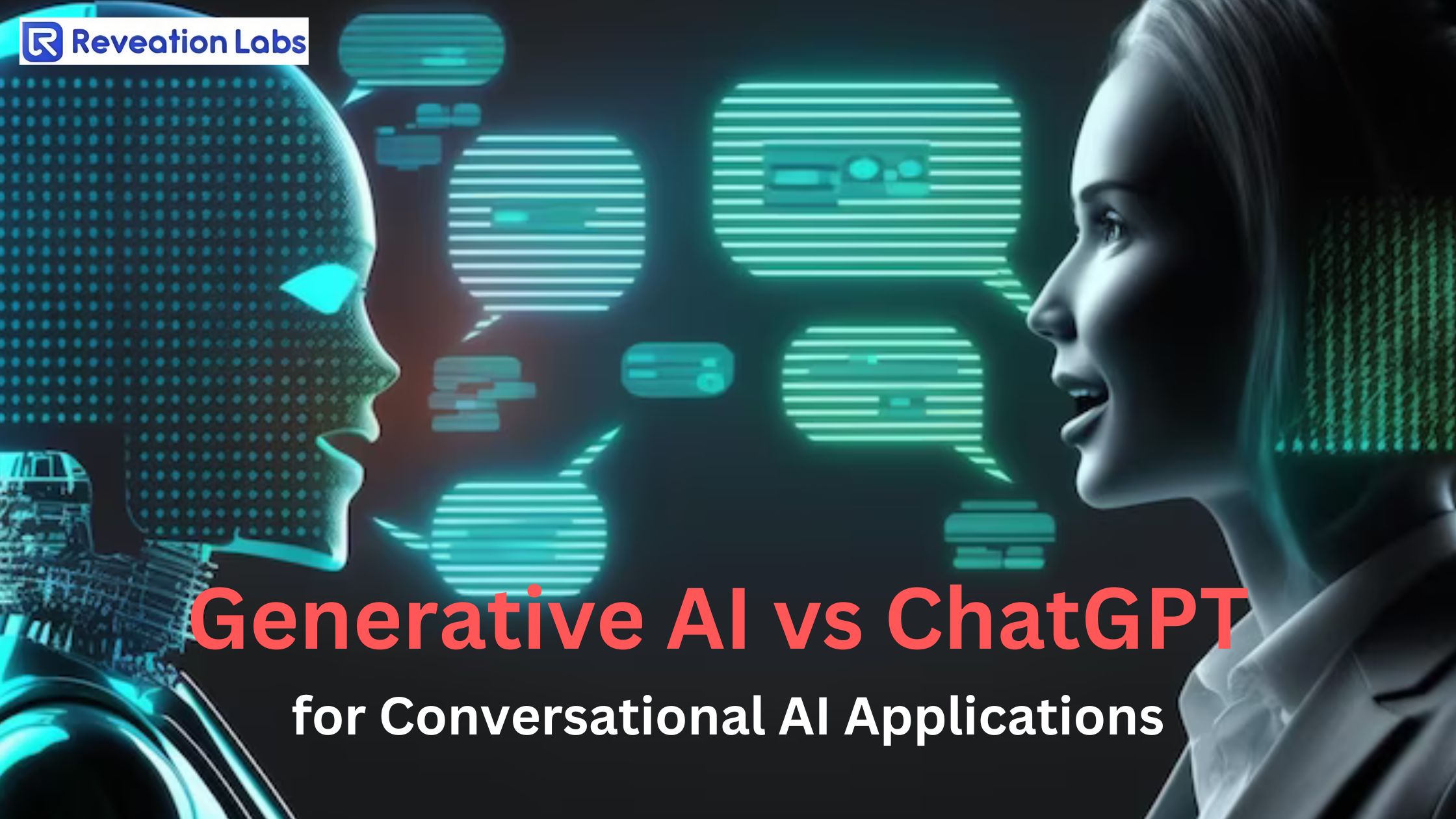komal Rathi
Fri Nov 24 2023


Curious about the role of Generative AI in predicting market trends and optimizing financial strategies?
Then let’s explore the fascinating world of Generative AI and its game-changing applications in finance.
What’s Generative AI?
Generative AI is a type of artificial intelligence that creates new and valuable content, such as text, images, or even financial models, on its own.
Significance of Generative AI in Enhancing Financial Processes
In the financial sector, AI has come a long way, evolving to play a crucial role in various processes.
Over time, AI has transformed how the financial industry operates. Initially, it was used for basic tasks, but advancements have enabled AI to handle more complex responsibilities. In finance, AI has become a powerful tool for analyzing data, predicting trends, and making informed decisions.
By utilizing Generative AI, financial institutions can streamline their operations, reduce errors, and adapt to the dynamic nature of the market. This technology has the potential to revolutionize how we approach financial tasks and create more efficient and effective processes.
Applications of Generative AI in Finance
A. Algorithmic Trading
1. Automated Decision-Making
Algorithmic trading, powered by Generative AI, has guided a new era of automated decision-making in financial markets. Traditional trading methods are often limited by human speed and capacity, but Generative AI algorithms can analyze vast datasets and execute trades at speeds unattainable by humans.
This results in quicker responses to market changes, optimizing trading strategies, and ultimately enhancing overall portfolio performance.
2. Predictive Analytics and Market Insights
Generative AI excels in predictive analytics, forecasting market trends based on historical data and real-time information. By processing immense datasets, these algorithms can identify patterns and signals that might go unnoticed by human analysts. This ability to predict market movements provides invaluable insights for financial institutions, enabling them to make informed investment decisions and mitigate risks.
B. Fraud Detection and Prevention
1. Real-Time Monitoring
Generative AI is a game-changer in the world of fraud detection and prevention, especially when it comes to real-time monitoring.
Traditional methods often involve manual reviews and batch processing, but Generative AI algorithms can continuously monitor transactions as they occur. This real-time scrutiny allows for the swift identification of suspicious activities, minimizing the impact of fraudulent transactions.
2. Anomaly Detection
Generative AI employs sophisticated anomaly detection techniques to identify irregularities in financial transactions. By establishing baseline behavior patterns, these algorithms can flag deviations that may indicate fraudulent activities.
The adaptability of Generative AI in learning from new data ensures that the system evolves alongside emerging threats, enhancing its efficacy in preventing financial fraud.
Also Read: How to Enhance Your Website with ChatGPT Integration
C. Credit Scoring
1. Assessing Creditworthiness
Generative AI has brought about a fundamental shift in credit scoring by using advanced algorithms to assess creditworthiness more accurately.
Traditional credit scoring models often rely on historical financial data, but Generative AI considers a broader spectrum of information, including non-traditional data sources. This holistic approach provides a more comprehensive evaluation of an individual's or a business's creditworthiness.
2. Improving Accuracy and Fairness
One of the notable advantages of Generative AI in credit scoring is its potential to reduce biases and improve fairness. By analyzing a diverse range of factors, including alternative data sources, Generative AI models can offer a more nuanced and unbiased assessment. This not only benefits individuals who may have limited traditional credit histories but also contributes to creating a fairer and more inclusive credit scoring system.
D. Customer Service
1. Chatbots and Virtual Assistants
Generative AI has revolutionized customer service in the financial sector through the implementation of chatbots and virtual assistants. These intelligent systems can handle a myriad of customer queries, providing instant responses and assistance. By automating routine interactions, financial institutions can enhance customer satisfaction, reduce response times, and allocate human resources to more complex tasks.
2. Personalized Financial Advice
Generative AI algorithms excel in analyzing individual financial profiles and preferences, enabling the delivery of personalized financial advice.
By considering diverse factors such as spending patterns, investment goals, and risk tolerance, these systems can offer tailored recommendations. This personalized approach not only enhances the customer experience but also empowers individuals to make more informed financial decisions.
Applications of Generative AI in Finance
A. Natural Language Processing (NLP)
1. Extracting Insights from Unstructured Data
Natural Language Processing (NLP) powered by Generative AI is like giving computers the ability to understand and make sense of human language. In finance, a vast amount of data is unstructured, coming in the form of news articles, social media posts, and financial reports.
Generative AI algorithms can look through the vast sea of unstructured data, extracting valuable insights and trends that might otherwise be missed. This ability to understand the language of data provides a more comprehensive understanding of market sentiment and economic indicators.
2. Enhancing Communication and Documentation
Generative AI in NLP is not only about crunching numbers; it's also about improving communication and documentation processes. These algorithms can assist in drafting reports, summarizing financial documents, and even generating human-like text for communication purposes.
By automating these tasks, financial professionals can focus on more strategic aspects of their work, while also ensuring that communication is clear, concise, and tailored to the intended audience.
B. Risk Management
1. Predicting and Mitigating Risks
Generative AI plays a crucial role in revolutionizing risk management in the financial sector. By analyzing historical data and identifying patterns, these algorithms can predict potential risks before they escalate. This proactive approach enables financial institutions to take preventive measures, minimizing the impact of adverse events.
Whether it's assessing credit risks, market risks, or operational risks, Generative AI provides a powerful tool for staying one step ahead in the complex world of finance.
2. Stress Testing Models
Stress testing involves evaluating how financial systems and models perform under extreme conditions. Generative AI contributes to this process by simulating various scenarios and assessing how well financial models withstand stress.
By subjecting models to hypothetical adverse situations, financial institutions can identify vulnerabilities and make necessary adjustments. This ensures that systems are robust and resilient, even in the face of unforeseen challenges.
C. Portfolio Management
1. Optimal Asset Allocation
Generative AI transforms portfolio management by optimizing asset allocation. These algorithms consider a large number of factors, including market conditions, risk tolerance, and investment goals, to recommend the most advantageous asset mix. This data-driven approach ensures that portfolios are aligned with investors' objectives while maximizing returns within specified risk parameters.
2. Dynamic Portfolio Adjustments
Financial markets are dynamic, and Generative AI enables real-time adjustments to portfolios. By continuously monitoring market trends and assessing the performance of assets, these algorithms can suggest timely changes to optimize portfolio outcomes. This dynamic approach to portfolio management ensures that investment strategies remain adaptive and responsive to evolving market conditions.
D. Financial Planning
1. Personalized Financial Plans
Generative AI is reshaping financial planning by delivering personalization tailored to individual needs. These algorithms analyze a person's financial situation, goals, and risk tolerance to create customized plans. This personalized approach ensures that financial advice is not one-size-fits-all, but rather, it aligns with the unique circumstances and aspirations of each individual.
2. Goal-Based Investing
Goal-based investing, facilitated by Generative AI, involves aligning investment strategies with specific financial objectives. Whether it's saving for a home, funding education, or planning for retirement, these algorithms help individuals allocate resources in a way that aligns with their goals.
This goal-oriented approach provides a clear roadmap for financial decision-making, empowering individuals to make informed choices that lead to the achievement of their objectives.
Addressing Common Doubts
A. Security and Privacy Concerns
1. Encryption and Secure Data Handling
Security and privacy are important when dealing with sensitive financial information. Generative AI recognizes these concerns and employs robust encryption methods to safeguard data.
Encryption is like a secret code that ensures only authorized parties can access and understand the information. This means that even if data is intercepted, it remains secure and unreadable to unauthorized entities. By prioritizing encryption, Generative AI ensures that financial data is handled with the utmost care and confidentiality.
2. Regulatory Compliance
Generative AI is designed with financial compliance in mind. Financial industries operate under strict rules and regulations to protect consumers and maintain the integrity of the financial system.
Generative AI algorithms adhere to these regulations, ensuring that they operate within the legal framework. This commitment to compliance provides an additional layer of assurance that the technology is being used responsibly and ethically, aligning with industry standards and legal requirements.
Must read: Guide on Generative AI Developers for Business Owners
B. Reliability and Trustworthiness
1. Explainability of AI Decisions
Understanding how AI arrives at decisions is crucial for building trust. Generative AI doesn't operate as a "black box"; rather, it strives to be transparent and explainable.
The algorithms are designed to provide insights into their decision-making processes. This transparency allows users, including financial professionals and regulators, to comprehend the reasoning behind AI-generated decisions. By demystifying the decision-making process, Generative AI aims to foster confidence in the reliability and trustworthiness of its outputs.
2. Validation and Testing Processes
Before Generative AI algorithms are put into action, they undergo rigorous validation and testing processes. This is similar to quality control checks to ensure that the algorithms perform as intended.
Generative AI is put through various scenarios and datasets to validate its accuracy, reliability, and robustness. Testing is a continuous process, with regular updates to adapt to changing environments. This commitment to thorough validation and testing instills confidence in users, assuring them that the technology has been diligently vetted before deployment.
C. Human Intervention and Control
1. Augmented Intelligence Approach
Generative AI operates on an augmented intelligence approach, emphasizing collaboration between machines and humans. It doesn't replace human expertise but enhances it. The technology is a tool that assists human professionals in their decision-making processes.
Human experts provide the context, ethical considerations, and nuanced understanding that AI might lack. This collaborative approach ensures that the strengths of both humans and AI are leveraged, striking a balance between technological innovation and human control.
2. Role of Human Experts in Decision-Making
Humans remain at the forefront of decision-making, overseeing and guiding the actions of Generative AI. While AI can process vast amounts of data and generate insights, human experts bring critical thinking, intuition, and ethical considerations to the table.
Human oversight is essential to ensure that AI aligns with organizational values, regulatory requirements, and ethical standards. By maintaining human control, Generative AI aims to avoid unintended consequences and ensures that decisions are made with a comprehensive understanding of the broader context.
Conclusion
In conclusion, Generative AI is reshaping finance by improving efficiency and innovation in areas like algorithmic trading, fraud detection, and customer service. Its versatility in natural language processing, risk management, and portfolio optimization is evident.
To ensure widespread adoption, addressing concerns about security, reliability, and human control is crucial. By combining encryption, explainability, and an augmented intelligence approach, Generative AI holds immense potential to transform the financial industry responsibly, creating a collaborative future where technology and human expertise drive success.
Why Reveation Labs
We are a team that is technically proficient and simultaneously caring for your business. Our ideology is to provide the latest technologies that suit your business well.
Let’s discuss your requirements!
Give your business the next-gen technology it deserves. Be a part of our family of successful enterprises that work on high-end software solutions.
Experts
In all the latest technologies and developments.
Creative
To innovate the best solutions and pick the right technology for you.
Ethical
To always put you first & respect your business values and procedures.
Dedicated
To meet the deadlines and help you until the very end and beyond.
Approachable
For all your business needs and queries at any point of time.
Transparent
In our ways of working.





